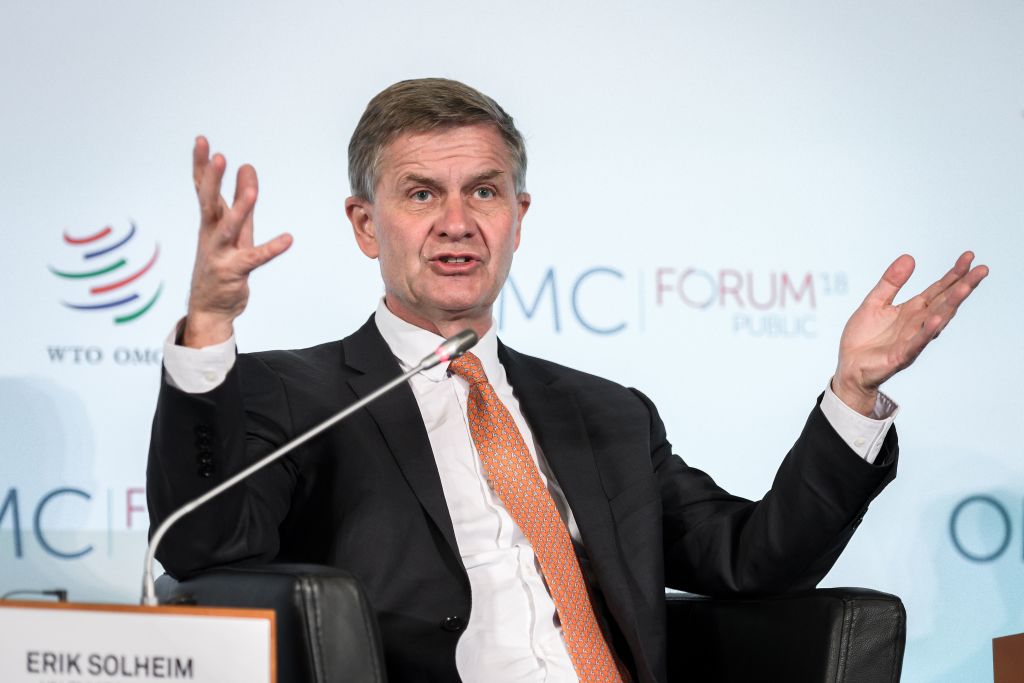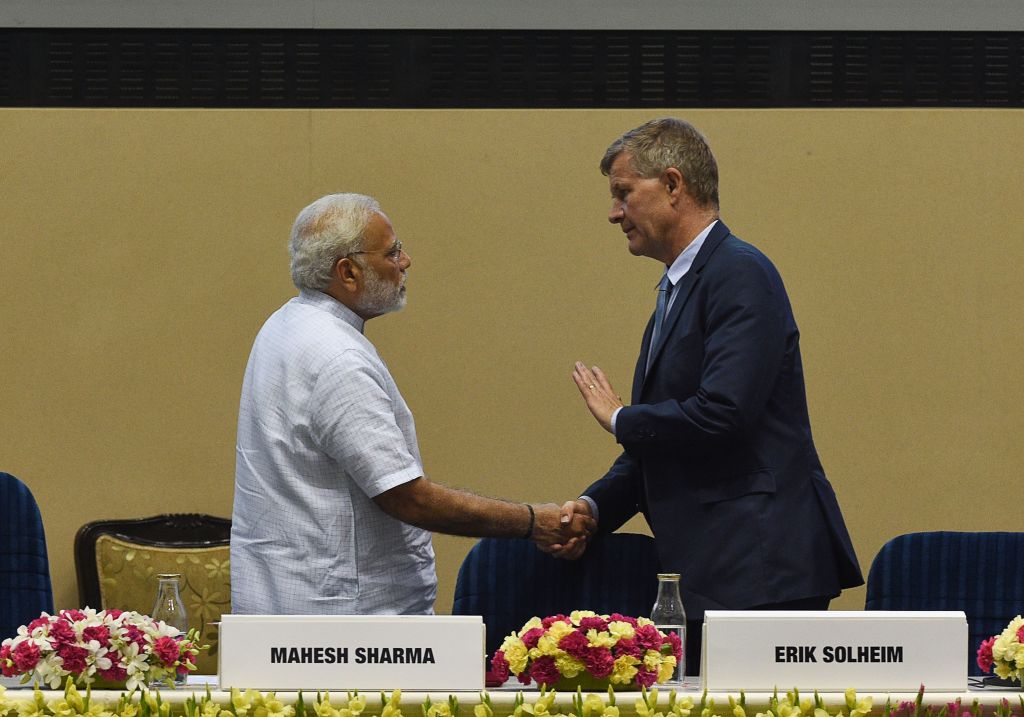- Monday, March 31, 2025
The former environment minister of Norway and a top official at the United Nations, Solheim spoke to India Weekly over a range of issues, from climate change to the Indian economy.

By: Shubham Ghosh
ERIK SOLHEIM, a prominent international figure in politics and diplomacy, advocates ways to effectively curb greenhouse gas emissions and address challenges related to climate change. The leader, who calls himself a green politician, has been Norway’s minister of international development and environment and also served as the executive director of the United Nations Environment Programme, has praised India for pioneering the balance between environmental sustainability and robust economic growth.
Applauding the south Asian nation’s commitment to environmental protection, Solheim has specifically mentioned about prime minister Narendra Modi’s strategic initiatives in green hydrogen, green batteries, and electric vehicles, which have positioned India prominently in the global effort for climate action.
India Weekly recently spoke with him over issues ranging from climate change to geopolitics to India’s growth as a major economy in the world and its competition with China.
Read: Indian environmentalists seek ban on mega projects in Himalayas

Solheim expressed confidence about the chances of India succeeding in meeting its environmental commitments, particularly achieving net-zero emissions by 2070 which has been pledged by prime minister Narendra Modi, despite the fact that conventional forms of fuel are still largely used by its people due to socio-economic factors.
Read: Is environment significant in India’s election? Parties do make promises but experts not convinced
“I am very confident India will live up to the commitment set by prime minister Modiji. In the past, there was a choice between development and environment. No longer. Solar energy has fallen 90 per cent in price in a decade. Wind energy nearly as much. Going green is no longer a cost for a nation such as India. It saves money, creates jobs and prosperity,” Solheim, who is currently the vice chair of the China Council for International Cooperation on Environment and Development, Beijing, told India Weekly.
When the publication asked the former under-secretary-general of the United Nations about the feasibility of nations arriving at a consensus on fighting climate change when they are not on the same level in terms of industrial development, Solheim conceded that it is very hard to reach consensus on climate talks but added that it is not a great deal since green investments are highly profitable these days.
“Nations who don’t go green will simply lose markets to Asian nations such as China, India, Vietnam and other who move fast,” he added.
Citing a case from India, the 69-year-old green politician said PM Modi launched in January a scheme for one crore (10 million) roof-top solar in India. He praised the move, calling it enormous and something that makes complete sense for India despite the outcomes of talks on climate.
Solheim believes climate talks have a limited significance in themselves and it’s the development in the political economy that matters.
“The Adani Group has started constructing the world’s largest solar and wind park in the salty deserts of Gujarat. It is 30 gigawatt which is gigantic. That is as much as all hydropower in my nation Norway and we are fully electrified by hydro with very high energy consumption. In Omkareshwar in Madhya Pradesh, India is building the world’s largest floating solar plant. These are profitable initiatives largely independent of any global negotiations,” he said.
It is often said that the 21st century belongs to Asia with countries such as India and China playing a key role. While the centre of geopolitics and geoeconomics are increasingly shifting to Asia from the west, it is also true that those parts of the world are home to a heavy population which is taking a toll of extreme effects of climate change. To what extent can Asia still take advantage of its so-called century while facing these challenges?
Responding to this question, Solheim said, “Ten years ago, Europe was leading the green charge in the world. Now China is the indispensable nation for the green transformation. China last year invested as much in renewable energies as the total economy of Turkey. Every five days, China adds as much green energy to the grid as the total grid in Nigeria, the largest nation in Africa. India will soon be the second largest solar and renewable nation. It benefits from the large market of 140 crore (1.4 billion) people as well as dynamic leadership from prime minister Modi as well as from states like Tamil Nadu and Gujarat.”
When India Weekly asked about the significance of the United Nations in dealing with climate disasters today and whether the world needs more commitment from it in terms of structure, resources, planning and execution towards that goal, Solheim called the world body “very weak” at the moment.
“The world needs a strong UN, but the institution is largely on the sidelines of global affairs. No one expects the UN to resolve the wars in Sudan, Gaza or Ukraine. The UN suffers from very poor leadership and from a defunct 75 years old structure, established when the West was still dominating the world. India should urgently become a member of the Security Council of the UN,” he added.
On the growth story of India and the areas where the country needs to focus more, Solheim told India Weekly that while India is currently the fastest growing of all the major economies in the world and expressed confidence that it will continue to grow at around seven per cent in the years to come, bringing hundreds of millions out of poverty, he also advised that the country needs to step up its basic education and improve public policy.
“The level of education is much lower than in, say China or Vietnam. To continue to grow fast, India needs a better educated working class. The negligence of education is the “original sin” of modern India, starting at the time of Jawaharlal Nehru.
“The other main area for improvement is public policy. Modi has done a lot to cut red-tapism and streamline the bureaucracy. But it still often takes too long to get permissions for say renewable energy or manufacturing which will create jobs and prosperity,” he said.
On India’s chances of emerging a true challenger to China in the short or long run, Solheim said the Chinese economy is five times bigger than the Indian and will continue to grow and while India will be able to reduce the gap, it would take time for it to reach China’s level.
“India has a younger population. Indian youth is highly dynamic. The Indian economy in 2050 will be equal to the US, but behind China in total size. There is every reason to be optimistic on behalf of Bharat,” he said.